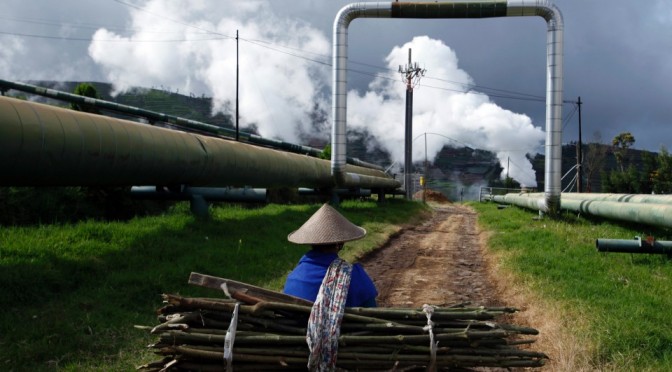Belize, a small country located on the northeastern coast of Central America, is making significant strides towards a clean energy future. The nation is known for its stunning natural beauty, diverse ecosystems, and commitment to environmental conservation. As part of its sustainable development strategy, Belize is exploring the potential of geothermal energy, a renewable and reliable source of power that could play a pivotal role in the country’s energy landscape.
Geothermal energy, which is derived from the heat of the earth’s core, offers a constant and virtually inexhaustible power source. Unlike solar and wind energy, which are dependent on weather conditions, geothermal energy can provide a steady supply of electricity around the clock. This makes it an attractive option for countries like Belize, which is striving to reduce its reliance on imported fossil fuels and enhance its energy security.
Belize’s interest in geothermal energy is not new. The country’s unique geographical location, situated on the Caribbean Plate, provides it with a wealth of geothermal resources. Preliminary studies have indicated the presence of significant geothermal potential, particularly in the southern region of the country. However, harnessing this potential has been a challenge due to the high upfront costs associated with geothermal exploration and development.
In recent years, Belize has taken concrete steps to overcome these barriers. The government has been actively seeking partnerships with international organizations and private sector entities to facilitate the development of the country’s geothermal resources. In 2018, the United Nations Development Programme (UNDP) provided technical assistance to Belize for the preparation of a national geothermal energy roadmap. This roadmap outlines a strategic framework for the development of geothermal energy in Belize, including key actions, timelines, and potential financing mechanisms.
Moreover, Belize has been working to create a conducive regulatory environment for geothermal energy development. The government has enacted legislation to provide incentives for renewable energy investments and has established a regulatory framework for the exploration and exploitation of geothermal resources. These efforts have started to bear fruit, with several geothermal projects currently in the pipeline.
One such project is being undertaken by the North American company, EGS Inc., which has signed a memorandum of understanding with the government of Belize to explore the geothermal potential in the country’s southern region. If successful, this project could pave the way for the development of Belize’s first geothermal power plant, providing a significant boost to the country’s renewable energy capacity.
The development of geothermal energy in Belize is not without its challenges. These include technical issues related to exploration and drilling, environmental concerns, and the need for significant capital investment. However, with the right policies and partnerships in place, these challenges can be overcome.
In conclusion, geothermal energy holds great promise for Belize’s clean energy future. As the country continues to explore and harness its geothermal potential, it is not only moving towards energy independence but also contributing to global efforts to combat climate change. The journey may be long and fraught with challenges, but the rewards – a sustainable, reliable, and clean energy future – are well worth the effort.


